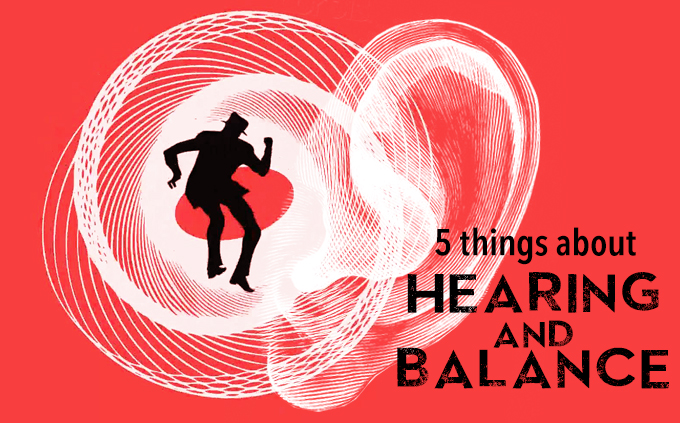
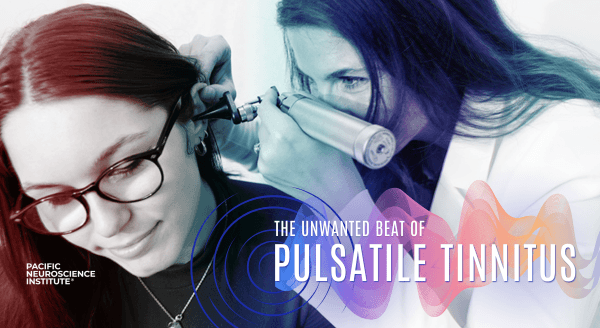
The Unwanted Beat of Pulsatile Tinnitus
by Zara Jethani
Tinnitus is a condition characterized by hearing noises or ringing in the ears that are not caused by an external source. While most people are familiar with the continuous ringing type of tinnitus, there is another less common form known as pulsatile tinnitus which could indicate a serious underlying health issue. This variant is unique in that the sounds heard are rhythmic and often in sync with the patient’s heartbeat. Pulsatile tinnitus often will occur as a rhythmic pulsing or whooshing sound that a patient hears in their ear. Pulsatile tinnitus often will occur as a rhythmic pulsing or whooshing sound that a patient hears in their ear. Here we talk with Dr. Rebecca Lewis and explore the causes, symptoms, and available treatments for pulsatile tinnitus.
What is Pulsatile Tinnitus?
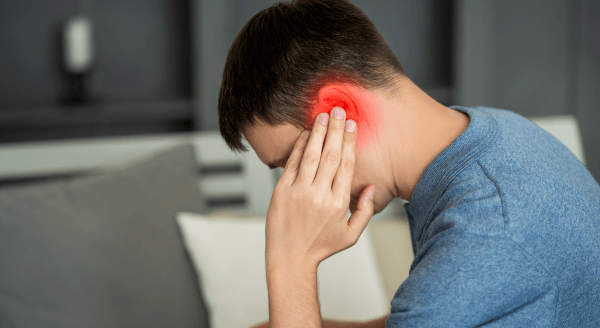
Pulsatile tinnitus is a rare type of tinnitus where the affected individual hears a rhythmic sound, often described as a whooshing, thumping, or beating noise, that aligns with their heartbeat. Unlike the constant ringing of traditional tinnitus, pulsatile tinnitus’s sounds are intermittent, in line with the pulse, and can be heard in one or both ears. Pulsatile tinnitus accounts for about 1 percent of all tinnitus cases, according to the National Organization for Rare Disorders (NORD).
“While it’s often benign (not harmful), it’s more likely to have an identifiable source, and may be the first sign of some kind of underlying condition,” says Rebecca Lewis, AuD, audiology director of the Adult & Pediatric Cochlear Implant Program at Pacific Neuroscience Institute® located at Providence Saint John’s Health Center in Santa Monica, CA.
What Causes Pulsatile Tinnitus in the Ear?
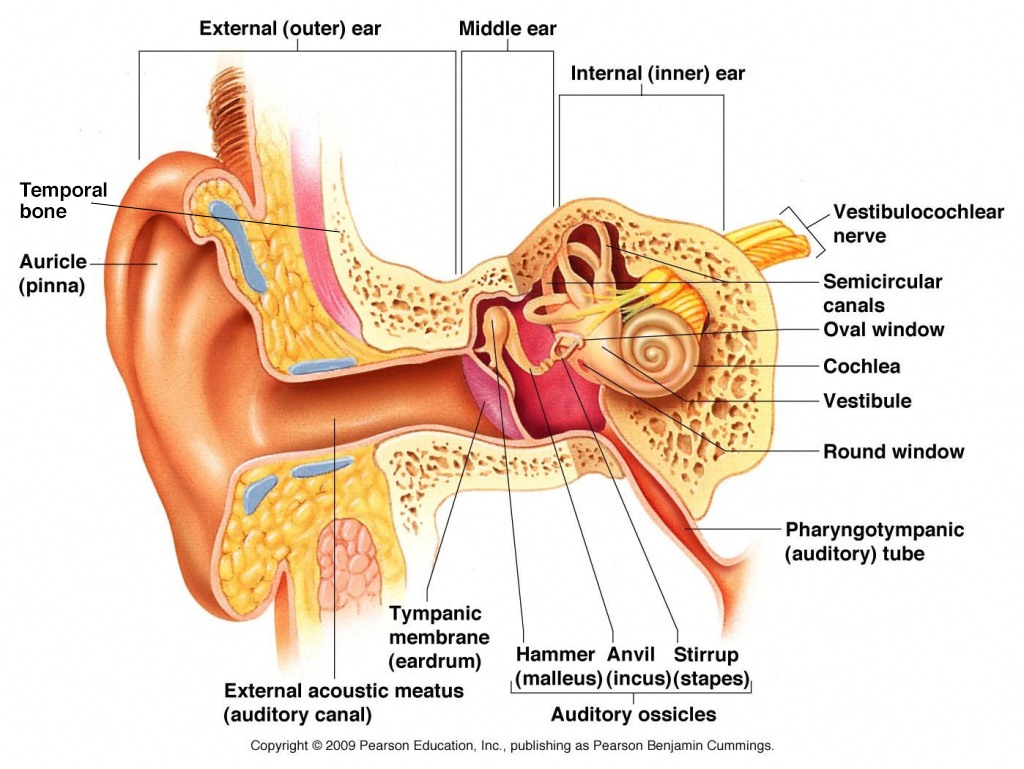
The underlying causes of pulsatile tinnitus can be varied and are often related to issues with blood flow or vascular conditions. The important thing to remember about tinnitus is that it’s not a diagnosis. That is, tinnitus is “a side effect of something else,” Lewis notes. With regular tinnitus, hearing loss is the most common culprit.
Some common causes of pulsatile tinnitus include:
- Vascular Abnormalities: Conditions such as arteriovenous malformations (AVMs) or carotid artery stenosis can create turbulent blood flow, which may be heard as pulsatile tinnitus.
- High Blood Pressure: Elevated blood pressure can increase the force of blood flow through the arteries, making it more likely to be heard.
- Atherosclerosis: The buildup of fatty deposits in the arteries can lead to narrowed blood vessels, resulting in noisy blood flow that can be heard as pulsatile tinnitus.
- Tumors: Certain benign tumors, including acoustic neuromas, can press against blood vessels and create a pulsatile sound.
- Venous Hum: Increased blood flow through the jugular vein can sometimes be heard as a hum or whoosh, particularly when lying down.
- Ruptured eardrum or excess earwax.
Also, anemia, head trauma, and hyperthyroidism are also sometimes associated with pulsatile tinnitus, Lewis says. Certain conditions, such as anemia and pregnancy, can increase the amount of blood your heart pumps, potentially causing pulsatile tinnitus.
Another type is muscular tinnitus, which results from muscle-related issues. It is more frequently observed in individuals with degenerative disorders like multiple sclerosis and amyotrophic lateral sclerosis.
What is the most common cause of pulsatile tinnitus?
The most common cause of pulsatile tinnitus is a vascular issue, where blood flow becomes turbulent or irregular near the ear.
Symptoms of Pulsatile Tinnitus in the Ear

The primary symptom of pulsatile tinnitus is hearing a rhythmic noise that coincides with the heartbeat. The trademark symptom of pulsatile tinnitus is when the sounds in your ear are in sync with your heartbeat, Lewis says. Hearing your heartbeat when you exercise is common, she notes. But with pulsatile tinnitus, “you might hear your heartbeat in your ear, even when you’re just laying down, not exerting yourself,” Lewis says.
Other associated symptoms of pulsatile tinnitus can include:
- Headaches or migraines.
- Dizziness or balance issues.
- Hearing loss in one or both ears.
- A feeling of fullness or pressure in the ears.
Diagnosing Pulsatile Tinnitus
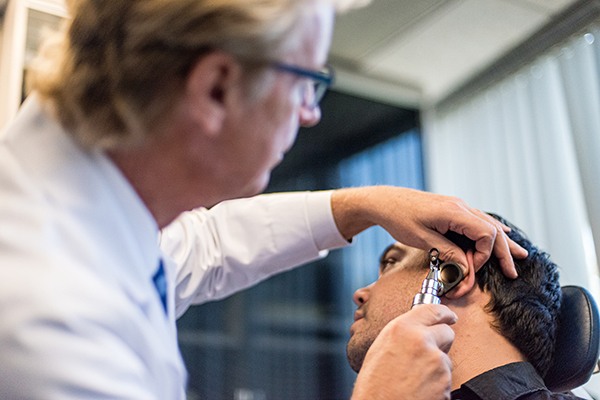
When you hear the clicking or ringing associated with ordinary tinnitus, it’s considered a subjective sound—nothing is actually producing the noise, and others cannot hear it. The sound is illusory. On the other hand, pulsatile tinnitus is classified as objective. This means that a sound is indeed occurring within your body, and doctors might be able to detect it, according to NORD.
“When someone hears this telltale tinnitus, it may not be dangerous itself, but usually is a symptom of a different health concern that may or may not be,” Lewis says. So don’t ignore it—follow up with an otolaryngologist (aka an ENT, or ear, nose, and throat doctor), she recommends. “It’s better to just go in and get an evaluation and not be worried about it. Usually it’s modifiable,” Lewis says.
Diagnosing pulsatile tinnitus involves a comprehensive medical evaluation to determine its underlying cause. Key steps in the diagnostic process may include:
- Medical History and Physical Examination: A detailed medical history and physical examination, particularly focusing on the ears, neck, and head, to identify any obvious abnormalities that may cause pulsatile tinnitus.
- Audiological Evaluation: Hearing tests to assess the extent of hearing loss and other ear-related issues.
- Imaging Studies: Tests such as MRI, MRA (magnetic resonance angiography), or CT scans can help visualize blood vessels and identify any vascular abnormalities or tumors in a patient.
- Blood Pressure Monitoring: Checking for high blood pressure as a potential cause of pulsatile tinnitus.
How long does pulsatile tinnitus usually last?
The duration of pulsatile tinnitus can vary widely depending on the underlying cause. For some individuals, it might be a temporary condition that resolves on its own, especially if it is related to transient issues like stress or a temporary change in blood pressure. However, for others, pulsatile tinnitus can be chronic and persist for months or even years if it is caused by ongoing conditions such as vascular abnormalities, atherosclerosis, or other underlying medical issues.
Key Points:
- Temporary Causes: If pulsatile tinnitus is due to a temporary condition, such as a short-term spike in blood pressure or temporary congestion, it may last only a few days or weeks.
- Chronic Conditions: When linked to chronic conditions like atherosclerosis, arteriovenous malformations, or tumors, pulsatile tinnitus may persist until the underlying condition is treated.
- Treatment: The duration of pulsatile tinnitus often depends on how quickly and effectively the underlying cause is diagnosed and treated. Successful treatment of the underlying issue can alleviate the tinnitus.
Because the variability in duration can be significant, it is important to consult a healthcare provider for an accurate diagnosis and appropriate treatment plan. Early intervention can help manage symptoms and address any underlying health issues more effectively.
Treatment Options for Pulsatile Tinnitus
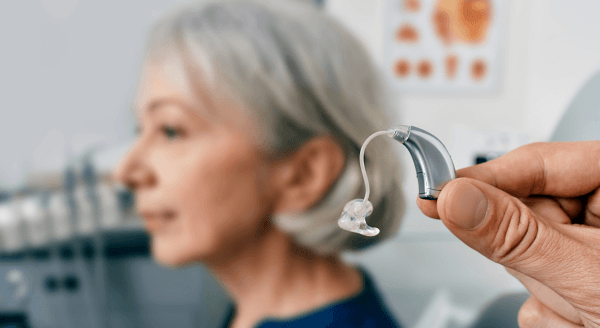
The treatment for pulsatile tinnitus largely depends on the underlying cause. If you have anemia, high blood pressure, or an undiagnosed thyroid condition, for instance, treatment for those conditions might help resolve symptoms, Lewis says.
Some common treatment approaches for pulsatile tinnitus include:
- Managing Blood Pressure: For cases related to high blood pressure, lifestyle changes and medications to lower blood pressure can help reduce or eliminate the symptoms.
- Surgical Intervention: In instances where vascular abnormalities or tumors are identified, surgical procedures may be necessary to correct the issue.
- Medications: Certain medications can help manage symptoms or treat underlying conditions contributing to pulsatile tinnitus.
- Sound Therapy: Masking devices or white noise machines can help drown out the rhythmic sound, making it less noticeable.
- Lifestyle Modifications: Reducing stress, avoiding caffeine and alcohol, and maintaining a healthy diet can sometimes alleviate symptoms.
- Cognitive behavioral therapy (CBT): With this type of therapy, you’ll gain tools that’ll help you cope with tinnitus. Another option is tinnitus retraining therapy, which pairs CBT with masking devices.
- Hearing aids for tinnitus: Hearing aids can help a lot with ringing in the ears, especially because most people with tinnitus actually have underlying hearing loss, which can magnify the sound of the tinnitus. Hearing aids allow you to hear the sounds that you want to hear (as opposed to the ringing) and often come with masking features that can help to obscure the sounds of tinnitus.
In Summary
Pulsatile tinnitus can be a distressing condition, but understanding its causes and symptoms is the first step toward effective treatment. If you or someone you know is experiencing symptoms of pulsatile tinnitus, it’s important to seek medical advice for a thorough evaluation and appropriate management. With the right approach, many individuals find relief from the rhythmic noises and can lead a more comfortable life.
About Dr. Rebecca Lewis

Rebecca Lewis, AuD, is an audiologist and the Audiology Director of the Adult & Pediatric Cochlear Implant Program at Pacific Neuroscience Institute. She also holds the position of Adjunct Professor at Mount Saint Mary University / John Tracey Deaf and Hard of Hearing program. She has provided rehabilitative services including hearing aids, hearing protection, Osseo integrated devices, auditory brainstem implant and cochlear implant (CI) services to adults and children.
Contact Us
For more information, contact Pacific Head & Neck Center Specialists at 310-477-5558.
Useful Links
Articles related to hearing
About the Author

Zara Jethani
Zara is the marketing director at Pacific Neuroscience Institute. Her background is in molecular genetics research and healthcare marketing. In addition, she is a graphic designer with more than 20 years experience in the healthcare, education and entertainment industries.
Last updated: August 22nd, 2024
